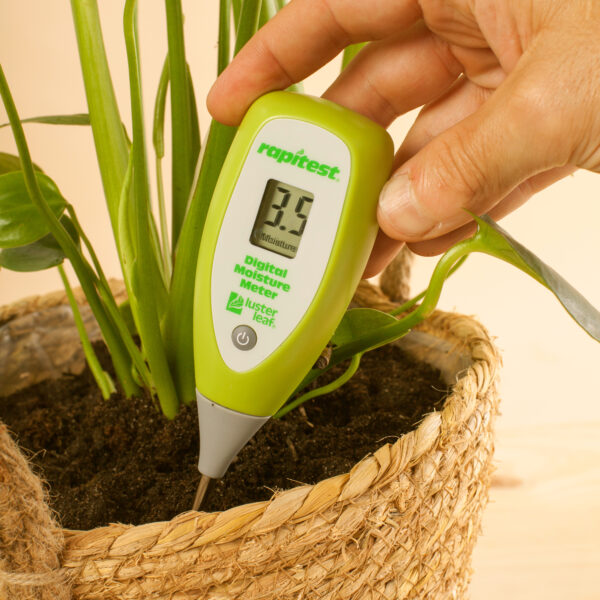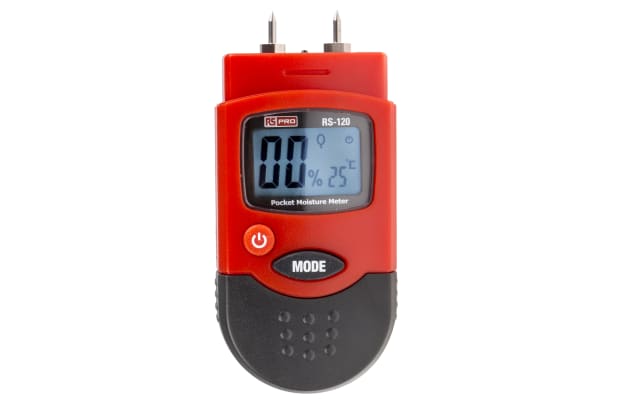The Science Behind Moisture Meters: How They Function and Why They're Essential
The Science Behind Moisture Meters: How They Function and Why They're Essential
Blog Article
The Ultimate Overview to Moisture Meters: A Comprehensive Summary and Just How They Can Conserve You Cash
In the realm of building upkeep, building, and different markets, the relevance of precisely measuring wetness degrees can not be overemphasized. Moisture meters offer as indispensable devices in finding and checking moisture web content in products, helping in protecting against pricey damages and guaranteeing the top quality of items. Understanding the subtleties of various kinds of wetness meters, their applications, and the potential cost-saving benefits they provide can be a game-changer for specialists and companies alike. Discovering just how these tools can not just enhance processes yet likewise add to financial cost savings is a journey worth embarking on.
Sorts Of Moisture Meters
One typical type is the pin-type dampness meter, which determines the electric resistance in between two pins put right into a material. Pinless wetness meters, on the other hand, use electro-magnetic sensing unit plates to scan a larger area without triggering damage to the material's surface.
In addition, there are also specialty wetness meters made for particular materials like hay, dirt, or grain. These meters offer precise wetness analyses customized to the special buildings of the product being tested. Infrared moisture meters measure the thermal residential properties of a product to identify its wetness material non-invasively, making them helpful for applications where pin or pinless meters might not appropriate. Comprehending the various types of moisture meters available can help industries choose the most appropriate tool for their certain dampness dimension demands.

Benefits of Using Moisture Meters

Moreover, making use of wetness meters can lead to enhanced energy efficiency. In agricultural setups, dampness meters play a crucial duty in enhancing crop yields by enabling farmers to check dirt wetness levels and make educated watering decisions.
How to Choose the Right Moisture Meter
Picking the ideal wetness meter includes considering key variables such as product compatibility, measurement array, and calibration precision. When selecting a moisture meter, it's vital to ensure that the meter is ideal for the certain product you will certainly be testing. Various materials have varying electric properties that can affect wetness readings, so picking a meter designed for your material is crucial for precise results. Furthermore, think about the dimension variety of the moisture meter. Make sure that the meter can find moisture levels within the variety needed for your applications. Calibration precision is one more essential variable to remember (Moisture Meter). Choose for a wetness meter with trusted calibration to guarantee accurate and consistent analyses. Some meters might require routine calibration modifications, so recognizing the calibration procedure is very important. By meticulously evaluating these elements, you can choose a moisture meter that fulfills your requirements and provides accurate dampness measurements for your jobs.
Proper Methods for Moisture Meter Usage
To make sure precise wetness readings and optimize the effectiveness of a moisture meter, utilizing proper strategies is necessary. When using a pin-type dampness meter, place the pins or probes right into the material being tested till they make full call. By complying with these correct methods, users can depend on their moisture meter to give credible moisture levels, aiding in stopping costly damage or ensuring top quality in various applications.

Expense Savings Through Moisture Meter Applications
Exactly how can the tactical application of wetness meters bring about considerable price financial savings across numerous markets? Wetness meters play an essential duty in price savings by preventing prospective damages and ensuring quality assurance in various industries. In the farming industry, wetness meters help in identifying the optimum time for harvesting crops, stopping excess or over-drying official statement wetness that can impact the end product's high quality. This specific monitoring helps farmers avoid unneeded losses and maximize their yield.

In addition, in the food handling sector, moisture meters are important for monitoring item top quality and ensuring conformity with security guidelines. By precisely determining wetness material in foodstuff, makers can avoid putridity, preserve freshness, and reduce waste, resulting in significant price financial savings. On the whole, the critical application of moisture meters is an important investment that can lead to significant price reductions and improved efficiency throughout various industries.
Verdict
In final thought, dampness meters are useful devices for spotting and measuring moisture degrees in various materials. By making use of the appropriate wetness meter and following appropriate strategies, users can successfully protect against expensive damages created by excess moisture.
Wetness meters offer as essential tools in identifying and keeping track of moisture material in products, assisting in avoiding expensive problems and making certain the quality of products. Infrared wetness meters determine the thermal homes of a material to identify its dampness content non-invasively, making them helpful for applications where pin or pinless meters may not be appropriate.Dampness meters supply invaluable benefits in accurately evaluating and keeping an eye on dampness degrees in varied products and settings. In agricultural settings, moisture meters visite site play an essential role in optimizing crop yields by enabling farmers to monitor dirt moisture degrees and make educated watering decisions.In click to investigate conclusion, moisture meters are valuable devices for gauging and finding wetness levels in various products.
Report this page